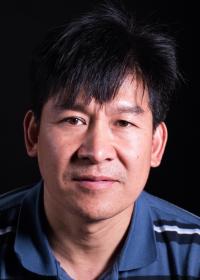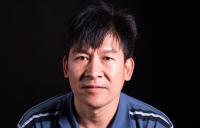I was sent to Czechoslovakia as one of the best students

Stáhnout obrázek
Le Quang Dao was born on 1 August, 1965 in Thanh Dinh, Vietnam, approximately 80 kilometers north of Hanoi into a poor family of the teacher Le Diên Co. Although his mother Phan Thi Hon gave birth to nine children, Dao was the only one to live to see adulthood. Seven siblings died after birth; his four years younger sister was born with a physical disability and died when she was fifteen. The high mortality rate in the family may have been caused by the use of chemical weapons in the course of the Vietnam War, which took place in 1955-1975. Dao‘s family lived out of his father‘s income and some crops from their field, which was given to the family by the communist government. Still, Dao experienced hunger. Thanks to excellent school results, he could study at a chemical school in a neighboring city. Just before graduation, he got accepted as one of the best students to an educational support program for Vietnam. In 1984, he left for Czechoslovakia where he completed vocational training to become a locksmith. He was expected to return to Vietnam after seven years as he was obliged to work in Czech Republic for three and a half years in the given profession. Although relationships with Czech women were forbidden in order not to prevent the students from returning home, Le Quand Dao did not meet this obligation. He had to pay back the tuition fees and in 1992, he married Olga, with whom he founded a family. In the 1990‘s, he worked as a salesman with clothes. At the time of the interview, he did business in restaurant services and performed Czech folk songs playing a guitar. He features in the 2010 documentary „Northern Vietnam is Cruel“ by Karel Koula.

